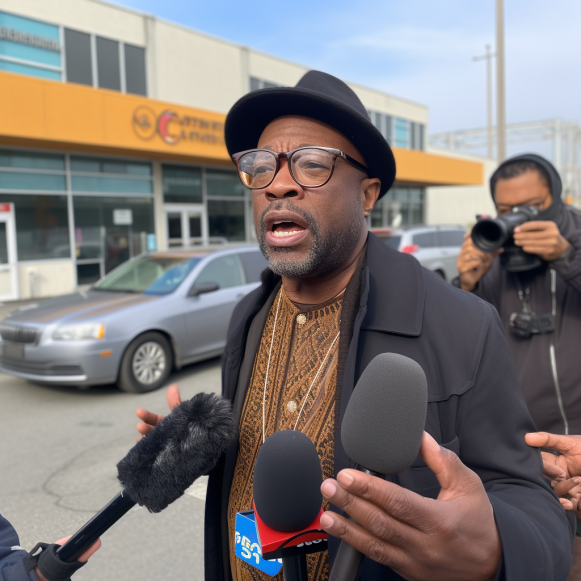Former Oakland police chief declares himself vindicated after report says firing should be “reversed”

Mayor Sheng Thao defends her decision to remove LeRonne Armstrong from the job
OAKLAND, Calif. — Before former Police Chief LeRonne Armstrong was fired in February, an investigation found that he had failed to hold a problem cop accountable and had given untrustworthy statements to outside investigators.
Now, a retired judge who was assigned to review Armstrong’s appeal has concluded that there was no basis for the fired ex-chief to face disciplinary action.
“The discipline imposed on Chief Armstrong should be reversed and removed from his personnel record,” says retired Judge Maria Rivera in a newly obtained confidential report.
The appeal review, obtained first by KQED, is non-binding, which means it cannot force Armstrong’s reinstatement as Oakland Police Department chief.
It could, however, play a significant role in Armstrong’s legal and public efforts to clear his name, which continued Monday with a news conference in which he declared himself vindicated.
“It really clearly states that I did not engage in policy violations, that I did not have any credibility issues, and that the statements made about me in that investigation were unfounded,” he said of the report.
Mayor Sheng Thao, who fired Armstrong in February, defended her decision on Monday, saying it was based on how he had launched a “knee-jerk” public crusade to keep his job rather than the initial findings of the investigators.
While on paid leave in January, Armstrong repeatedly dismissed his officers’ alleged wrongdoing as “mistakes” and claimed he was unfairly targeted for firing by a federal official who oversees OPD’s operations.
“By immediately and prematurely standing up for himself personally, Mr. Armstrong failed to stand up for accountability at OPD,” Thao explained. “His conduct forced me to make one of the most difficult decisions I have ever had to make.”
Meanwhile, Rivera’s report advises the two parties to “discuss all of the ways in which this dispute might be resolved in negotiations, including the possibility of reinstatement.”
“It would be wise for both parties, and of great benefit to the citizens of Oakland, to avoid the costs and related toll of protracted litigation,” according to the report.
Armstrong was initially placed on paid administrative leave in January after a San Francisco law firm investigation determined he had overlooked the alleged misconduct of a sergeant under his supervision.
The investigation discovered that key details of the officer’s alleged wrongdoing — involving a hit-and-run with a civilian’s parked car — were watered down by his higher-ranking internal affairs officers, and that the chief later gave statements in interviews that led the investigators to question his credibility.
The investigation, according to Rivera’s report, contained “inaccuracies in its characterization of Chief Armstrong’s statements during his interview, making the credibility assessment unreliable.”
It goes on to say that the investigators’ findings “are not adequately supported in the record, and lack appropriate context.”
The report does not take a formal position on whether Armstrong should be reinstated, noting that the decision should take “consideration of intervening events, as well as policy matters.”
Nonetheless, the report is likely to have political clout. The head of Oakland’s civilian-led police commission expressed support for the chief’s potential reinstatement on Monday.
Notably, the report makes no judgment on Robert Warshaw, the federal official in charge of OPD whose integrity Armstrong has questioned.
Jim Chanin, a civil-rights lawyer whose lawsuit against the OPD two decades ago resulted in the department being placed under federal oversight, expressed reservations about the outside investigation in January.
But, like the mayor, Chanin believes Armstrong’s public campaign against the authorities, rather than the initial scandal, was the catalyst for his downfall.
“It’s hard to see how he could expect to be in the department or chief of police when he thought (Warshaw) was corrupt and the mayor was (Warshaw’s) pawn,” Chanin said in an interview.




